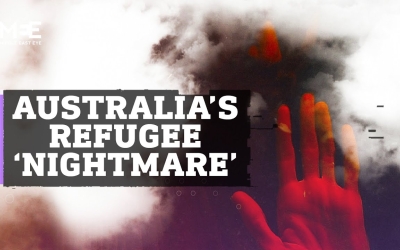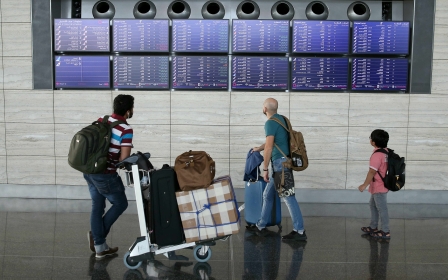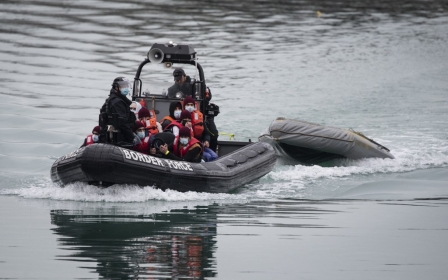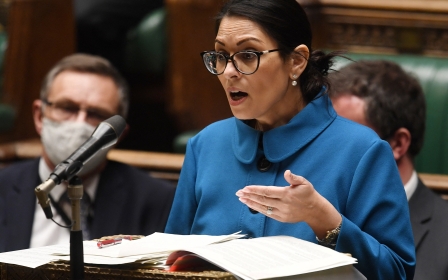Alexander Downer: New UK immigration adviser's most controversial comments
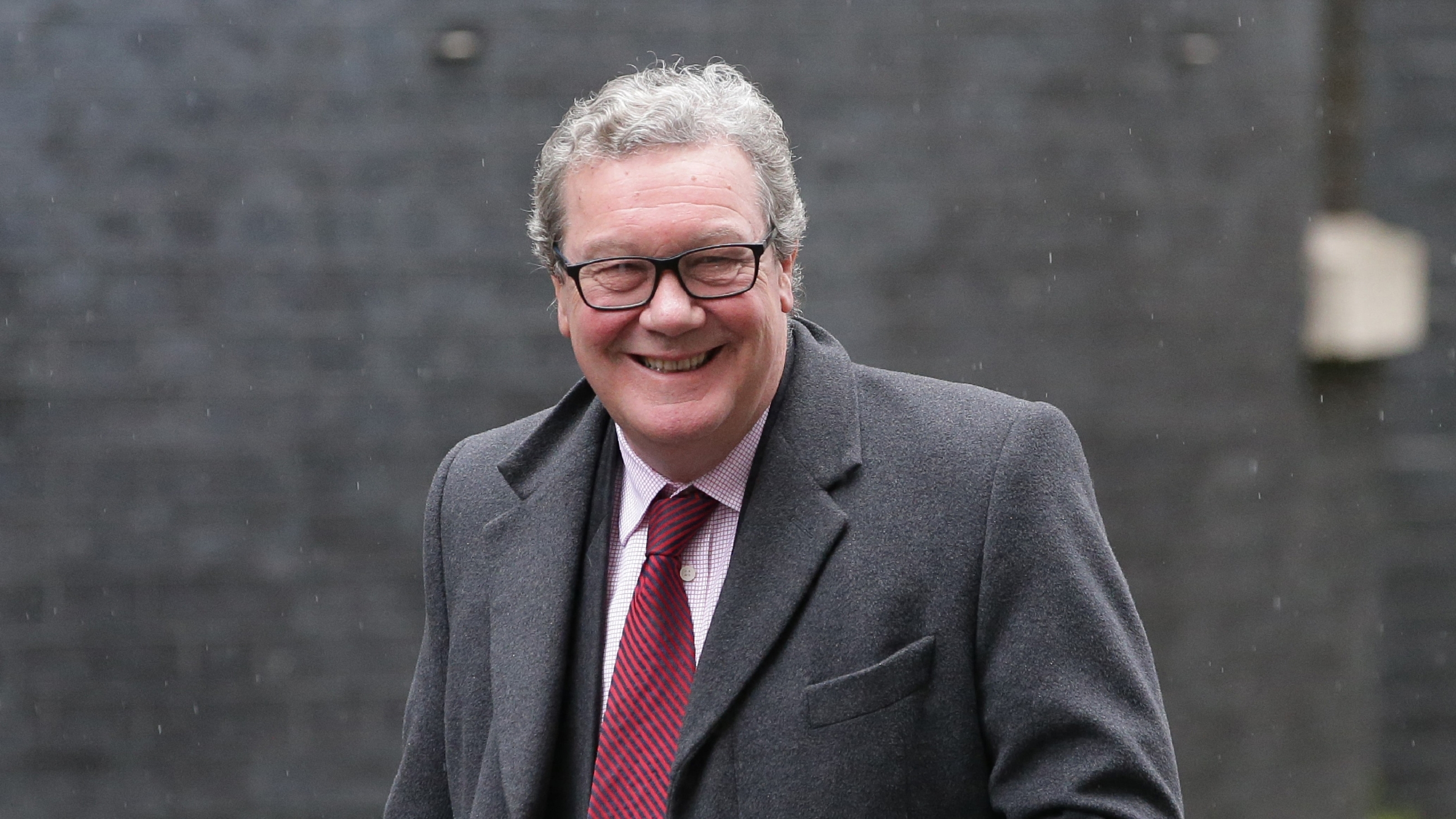
The British Home Secretary Priti Patel has selected Australia's controversial former foreign minister Alexander Downer to review the UK Border Force and examine its "structure, powers, funding, and priorities".
The Public and Commercial Services Union, which represents Border Force staff, has condemned the decision to appoint Downer, the architect of Australia's policy of turning back migrant boats, describing it as "wholly inappropriate".
"He was a prime architect of Australia's inhumane immigration policy and his support for pushback recently makes him a wholly inappropriate choice to lead this review," the Financial Times reported a spokesperson for the union as saying.
New MEE newsletter: Jerusalem Dispatch
Sign up to get the latest insights and analysis on Israel-Palestine, alongside Turkey Unpacked and other MEE newsletters
Australia's offshore processing policy and practices, which were initiated under Downer, have been consistently criticised by the United Nations, human rights groups, and by refugees themselves.
Since leaving politics, Downer has spoken at length about immigration policies that affect countries outside of Australia.
The Border Force review is expected to take several months to complete.
Below are some of Downer's most controversial remarks and decisions on immigration.
'No obligation under international law'
During his time as Australia's foreign minister, Downer led negotiations for what became known as the "Pacific solution," which was first introduced by the government of former prime minister John Howard in 2001.
The policy saw asylum seekers heading for Australia diverted and detained in Nauru and Manus Island in Papua New Guinea (PNG).
In August that year, Howard turned away a cargo ship carrying 438 asylum seekers. At the time, Downer said: "It is important that people understand that Australia has no obligation under international law to accept the rescued persons into Australian territory."
Widely condemned by the UN and rights groups, Downer and other members of the government argued the policy was aimed at discouraging refugees from more dangerous entry routes into the country and to prevent trafficking.
While the policy was initially dropped by the country's Labour government in 2008, it was later reintroduced due to a number of migrant boat disasters, with the procedure renamed "Operation Sovereign Borders".
Since 2012, all asylum seekers who arrive by boat in Australia have been sent to offshore processing centres for determination of their claim for protection and held there indefinitely.
Last year, Australia announced it would end offshore processing on PNG by the end of 2021, leaving Nauru as its sole regional processing centre.
However, according to the Refugee Council of Australia, as of 31 December 2021, there were 105 people still in PNG and 114 in Nauru.
'Send them back to whence they came'
In 2015, Downer told the BBC that the introduction of processing centres like those in Australia would help combat the migrant crisis affecting Europe.
"You could build processing centres in North Africa," he told the broadcaster, adding that if people were found to be genuine they could be resettled in Europe, but if not "you need to send them back to whence they came".
'Not looking just for protection'
In 2019, during a speech on migration in Hungary, Downer said: "There is a world of difference between somebody who migrates to our country and somebody who we protect as a refugee.
"These people are not looking just for protection, these people are looking to migrate.
"And they are looking to migrate to the country they want to go to.
"They get protection in all sorts of other countries on the way to your country, but no, no, no – we're going to let them in and become migrants. This is, of course, undermining the whole system."
'Introduce obstacles'
Writing in the Daily Mail last year, Downer, a stringent advocate for stronger borders, said: "Priti Patel has been widely ridiculed on both sides of the Channel for suggesting that boats carrying migrants be physically 'pushed back' towards the French coast.
"If you introduce obstacles that sharply increase the prospect of failure, the economic equation changes.
"The migrants will stop paying for places on the boats and the traffickers will stop buying and kitting out the vessels."
Downer added that the suggestion people were fleeing France was "ridiculous," citing his recent holiday experience in Dordogne which was "very civilised".
Middle East Eye delivers independent and unrivalled coverage and analysis of the Middle East, North Africa and beyond. To learn more about republishing this content and the associated fees, please fill out this form. More about MEE can be found here.


